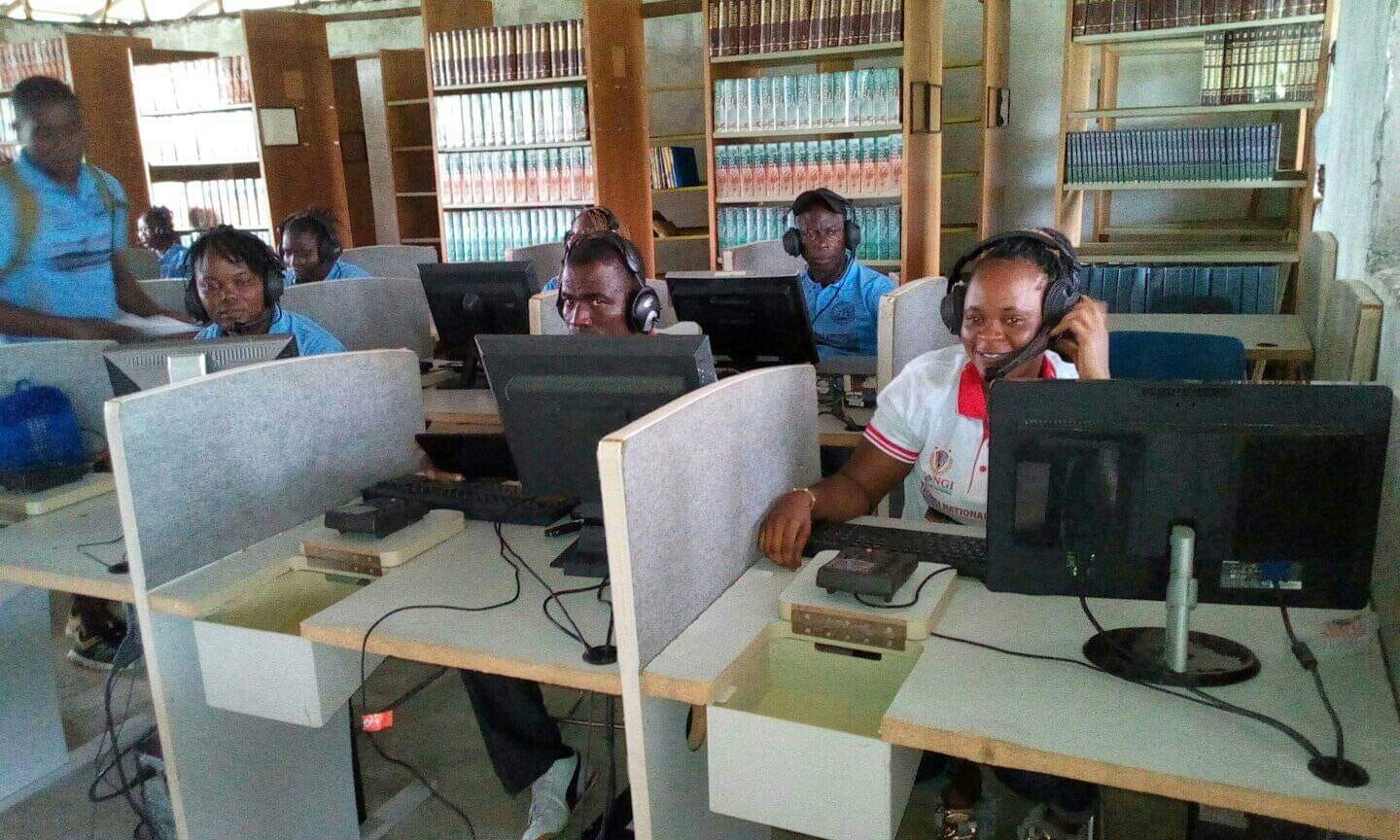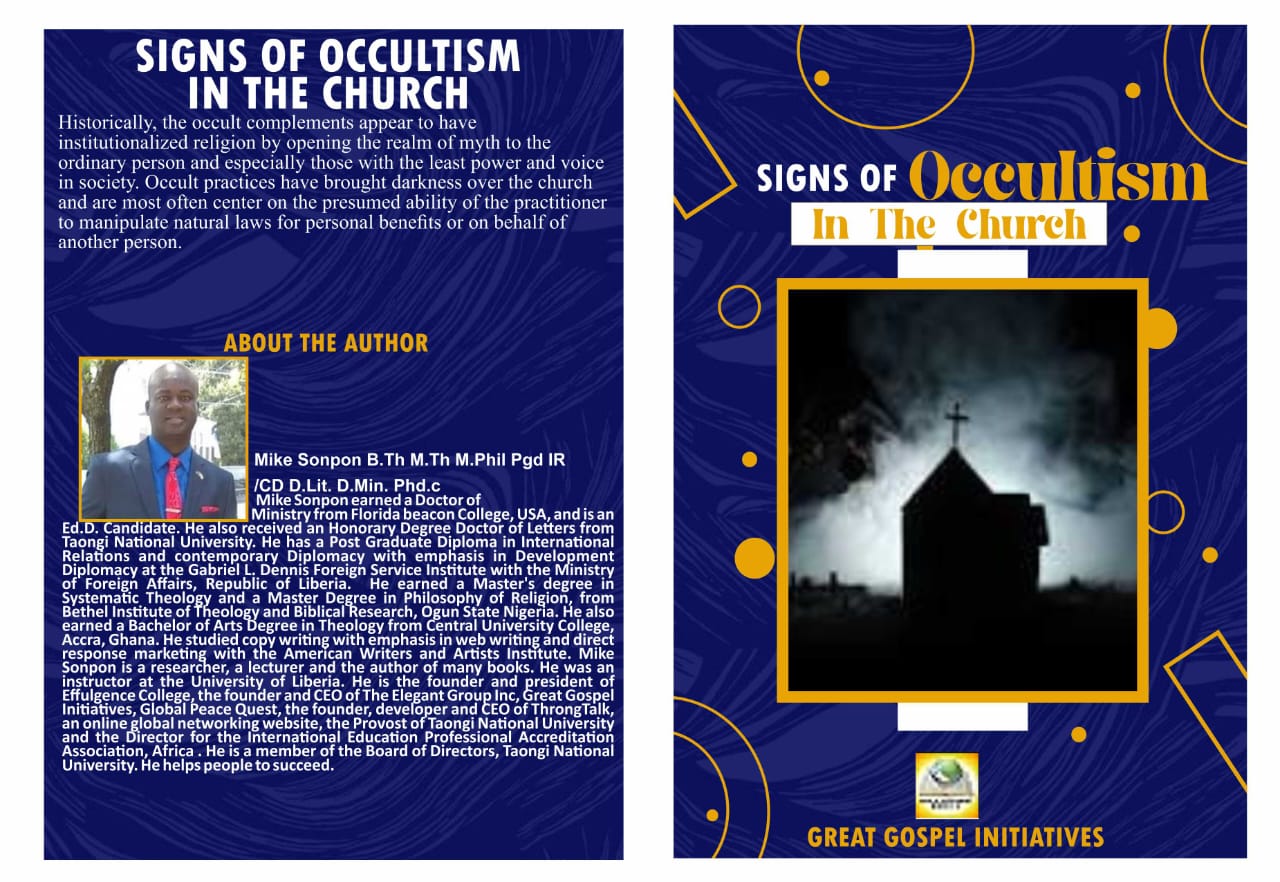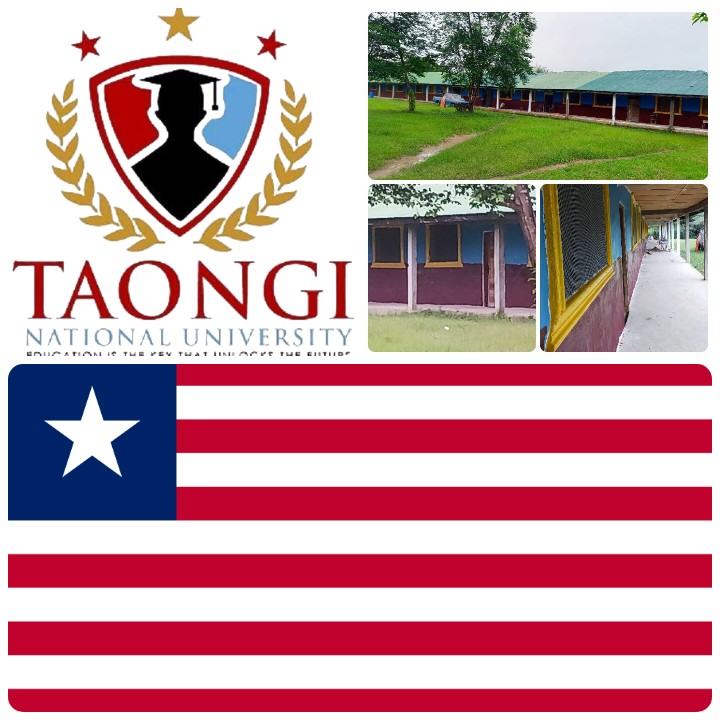
By: Mike M. Sonpon B.Th, M.Th, M. Phil. Pgd. IR / CD, D. Litt. D. Min, Phd. ©
Introduction
The world is in chaos, and the United Nations is at the center of many conflicts around the world, with member states being the key players in territorial disputes or wars and conflicts. Terre have been many agreements made to bring peace, but yet, there is no peace. But why are there too many territorial disputes or wars because of territorial disputes?
This paper discusses the terms ’sovereignty’ and ‘self-determination’ and the quest to redefine and amend the term ‘sovereignty’ in international law. The current definition of the term sovereignty is restrictive, bias, and contradicts the principles of self determination and also violates human rights. The paper argues that the current definition of the term sovereignty is a major contributing factor to territorial disputes in the world, and the difficulties being encountered in trying to maintain global peace. Sovereignty treaties and agreements influenced by the current definition of sovereignty are no longer the guarantee for maintaining global peace. A new and inclusive definition of sovereignty that takes into account the full concepts and principles of self determination and the idea of landless sovereignty or state’s sovereignty without territoriality, or society states are the best remedies to maintain global peace. Finally, the paper argues that the new definition of sovereignty will lead to the establishment and the recognition of people craving for landless sovereignty, or state’s sovereignty without territoriality, or society states and then help to promote global peace.
The term sovereignty
The Meriam-Webster online dictionary defines the word ‘sovereignty’ as:
a) Supreme power especially over a body politic
b) Freedom from external control
c) Controlling influence
d) One that is sovereign, especially, an autonomous state
Etymologically, the term arises from the unattested Vulgar Latin’s ‘superanus’, (itself derived form of Latin super – “over”) meaning “chief”, “ruler” Its spelling, which varied from the word’s first appearance in English in the fourteenth century, was influenced by the English reign. The concept of sovereignty has multiple conflicting components, varying definitions, and diverse and inconsistent applications throughout history. The current notion of state sovereignty contains four aspects consisting of territory, population, authority and recognition. According to Stephen D. Krasner, the term could also be understood in four different ways:
- Domestic sovereignty – actual control over a state exercised by an authority organized within this state,
- Interdependence sovereignty – actual control of movement across state’s borders
- International legal sovereignty – formal recognition by other sovereign states
- Westphalia Sovereignty- there is no other authority in the state aside from the domestic sovereign (examples of such other authorities could be a political organization or any other external agent).
Sovereignty is the defining authority within individual consciousness social construct, or territory. Sovereignty entails hierarchy within the state, as well as external autonomy for states. In any state, sovereignty is assigned to the person, body, or institution that has the ultimate authority over other people in order to establish a law or change an existing law. In political theory, sovereignty is a substantive term designating supreme legitimate authority over some polity. In international law sovereignty is the exercise of power by a state De jure. Sovereignty refers to the legal right to do so; De facto sovereignty refers to the factual ability to do so. This can become an issue of special concern upon the failure of the usual expectation that de jure and de facto sovereignty exist at the place and time of concern, and reside within the same organization.
The Cambridge online Dictionary define sovereignty as the power of a country to control its own government while, Dictionary.Com, an online dictionary defines sovereignty as the quality or state of being sovereign, or of having supreme power or authority. It is also the status, dominion, power, or authority of a sovereign; or royal rank or position; royalty, and the supreme and independent power or authority in government as possessed or claimed by a state or community. Including its rightful status, independence, or prerogative, as a sovereign or independent state, community, or political unit.
In international law, sovereignty means that a government possesses full control over affairs within a territorial or geographical area or limit. Determining whether a specific entity is sovereign is not an exact science, but often a matter of diplomatic dispute. The principle of sovereignty is one of the fundamental principles of international law and applies in cyberspace. It refers to the supreme authority of every State within its territory to the exclusion of other States, and also in its relations with other States. Sovereignty is a political concept that refers to dominant power or supreme authority. For examples, in a monarchy, supreme power resides in the sovereign”, or king. In modern democracies, sovereign power rests with the people and is exercised through representative bodies such as the legislative branch of government, or Congress or Parliament. Sovereignty is the bedrock of international relations. The concept lays out basic rules for how countries are allowed to interact with one another. In principle, it means countries get to control what happens inside their borders and can’t interfere in what happens elsewhere. As we have seen, the current notion of state sovereignty contains some major aspects such as, economy, territory, population, authority or government and recognition. It describes the power of one state or thing over another or the freedom a state or thing has to control itself. In international law, sovereignty means that a government possesses full control over affairs within a territorial or geographical area or limit. Determining whether a specific is sovereign is not an exact science, but often a matter of diplomatic dispute. This is important because, in international law, the formation and protection of sustainable freedom, equality and justice in society depends totally on the exact sense of establishment of national sovereignty. Therefore, the basis of freedom, equality and justice is national sovereignty. Freedom in our society and in our state is limitless. To further express this idea, the key points here include but not limited to the following main features and attributes of sovereignty:
- Permanence. As long as the State lasts, it is sovereign. …
- Universality. Universality indicates the meaning that the sovereignty of the state is all comprehensive and extends to all individuals and associations within the territorial limits of the state. …
- Inalienability. …
- Indivisibility. …
- Absoluteness, with supremacy and independence, often referred to, respectively, as internal sovereignty and external sovereignty.
Implications
But what does the definition of sovereignty mean? It means, freedom, equality, and justice can be fully exercised by an individual or groups of individuals within the context of national sovereignty or a state that has a territory, economy, government, and a population, In other words, without a territory, economy, government, and population, an individual or groups of individuals cannot exercise freedom, justice, and equality. And again, even if there is systemic and institutionalized corruptions, fraudulent elections, and bad governance, as long as the state is recognized as a sovereign nation, it does not matter, individuals or the populations are obliged to remained committed and continued to be under the control of the state, because it is a sovereign nation. This also means that individuals or groups of individuals who have fled the place of their birth, and can no longer live there because of repression, suppression, and depression incurred from bad governance, systemic and institutionalized corruptions, cannot also exercise freedom, equality, and justice because they don’t have a territory to qualify them to be recognized as a sovereign state. And again, to be recognized as a sovereign state, you must have a territory, government, population, and an economy. Without these elements that constitute the term sovereignty, you cannot exercise freedom, equality, and justice, because all of these can only be exercised in a specially defined territorial limit that is recognized as a sovereign nation. The idea that “NATIONAL SOVEREIGNTY” is the legal status that enables individuals or groups of individuals to exercise freedom, equality, and justice, because all of these can only be exercised within a specially defined territorial limit, is a violation of human rights and contradiction to the principles of self-determination. This is a complete violation of human rights because, the current definition of sovereignty seems to postulate that as long as there is no LAND, or TERRITORY, to qualify groups of individuals to form a government and a state, or has already been recognized as a sovereign state, and considered as the dwelling place of individuals or groups of individuals, there can be no way to exercise freedom, equality, and justice. As we can see, these are some of the reasons why, landless people and also people who are refusing to obey governments that are practicing bad governance, fraudulent elections, systemic and institutionalized corruptions, are going through immense suffering and gross human rights violation in the world. The power of sovereignty is in the hands of the ‘SOVEREIGN’ and whatever he or she does is right, as long as the stste is a sovereign nation, the leader or leaders are always in the right. Individuals or groups of individuals that are refusing to obey the system because of systemic and institutionalized corruptions, bad governance and fraudulent elections, are in the wrong. In my opinion, this is a violation of human rights, being committed not only by the state, but also by the universal systems that continue to uphold this bias, restrictive, and bad definition of the word sovereignty.
Self-determination
Self-determination denotes the legal right of people to decide their own destiny in the international order. Self-determination is a core principle of international law, arising from customary international law, but also recognized as a general principle of law, and enshrined in a number of international treaties. Self-determination means that:
We participate in decisions that affect our lives. This includes a right to formal recognition of our group identities. We have control over our lives and future including our economic, social and cultural development. The key principle here is that all peoplehave the right to direct their futures; have control over how they live their lives, where, and with whom; and have authority over the resources that support them. Meanwhile, National self-determination appears to challenge the principle of territorial integrity (or sovereignty) of states as it is the will of the people that makes a state legitimate. This implies a people should be free to choose their own state and its territorial boundaries. Self-determination is about taking action in your life to get the things you want and need. For example, if someone says: “If you do this I’ll give you a very good gift” even if you decide to do it you are not the person who took the action in the first place. Self determination is when you set things up to get what you want. Being self-determined—that is, acting volitionally and making things to happen in one’s life—has been linked to multiple positive outcomes, including, importantly, enhanced quality of life and life satisfaction, participation in decision-making, free, prior and informed consent, and good faith. Internal self-determination is the right of the people of a state to govern themselves without outside interference. External self-determination is the right of peoples to determine their own political status and to be free of alien domination, including formation of their own independent state. The term self-determination refers to a person’s own ability to manage themselves, to make confident choices, and to think on their own. It involves many attitudes and abilities including: self-awareness, assertiveness, creativity, and pride, and problem solving and self-advocacy skills. To take charge of your own life, you must be able to set goals, evaluate options, make choices and then work to achieve your goals. Accordingly, the following areas and skills of self-determination are essentials and serve as the basic qualities of the core principles of Self-Determination:
- Choice-making skills. The ability to express a preference between two or more options.
- Decision-making skills. …
- Problem-solving skills. …
- Goal setting/attainment skills. …
- Self-regulation skills. …
- Self-advocacy skills. …
- Positive self-efficacy. …
- Self-awareness skills.
The biggest advantage of Self-Determination is the awareness that it provides. Once you realize how important competence, relatedness and autonomy are to motivation and performance, you can take steps to ensure that your needs are being met. This means that you have the power to make decisions and truly be in control of your life, and also the right to choose what you will do with your life and with whom you will do it. Self-determination can play an important role in how people function in many different areas of their lives. Feeling in control and intrinsically motivated can help people feel more committed, passionate, interested, and satisfied with the things that they do.
Self-determination denotes the legal right of people to decide their own destiny in the international order. Self-determination is a core principle of international law, arising from customary international law, but also recognized as a general principle of law, and enshrined in a number of international treaties. For instance, self-determination is protected in the United Nations Charter and the International Covenant on Civil and Political Rights as a right of “all peoples.”
The scope and purpose of the principle of self-determination has evolved significantly in the 20th century. In the early 1900’s, international support grew for the right of all people to self-determination. This led to successful secessionist movements during and after WWI, WWII and laid the groundwork for decolonization in the 1960s.
Contemporary notions of self-determination usually distinguish between “internal” and “external” self-determination, suggesting that “self-determination” exists on a spectrum. Internal self-determination may refer to various political and social rights; by contrast, external self-determination refers to full legal independence/secession for the given ‘people’ from the larger politico-legal state.
As we have seen, the principles of self-determination make it very glaring that National self-determination appears to challenge the principle of territorial integrity (or sovereignty) of states as it is the will of the people that makes a state legitimate. This implies a people should be free to choose their own state and its territorial boundaries. But from history, it has been observed that this principle and concept of self-determination was not applied to allow people to choose their own territorial boundaries; hence, there are many territorial disputes in the world today.
Territorial Disputes
According to the Curtis team of advisors on Public International law, a territorial dispute is “a disagreement between two or more States about which State exercises sovereignty over a certain part of territory. Territorial disputes fall within two different categories. Certain territorial disputes concern the entirety of the territory of a State thus resulting in a challenge to that State’s existence. Other territorial disputes only affect part of one or more States’ territory and concern the placement of one or more boundaries that delimit the territory over which each State exercises sovereignty. International law sets out the rules governing the control and transfer of territory.”
The Annexation of Africa!
In 1885, in a conference in Berlin, Germany, seven Western European powers, parceled Africa and divided the continent among themselves, to support their personal aggrandizement. While scrambling for Africa, they packaged the continent, and looted its resources. To continue their looting spree, while dividing the continent, they did not care about the principles of self determination, which says, it is the will of the people that makes a state legitimate. This implies a people should be free to choose their own state and its territorial boundaries. Instead,they divided the continent based on the kinds of resources that they were interested in controlling, under the pretext that they were annexing or forming colonies, or overseas territories, by default, an extension of their European territorial boundaries. Therefore, they imposed their languages and cultures on the people of Africa, and then left the continent in territorial disputes.
Africa did not really need to be annexed or conquest at the time, but because the European powers needed resources the most, to keep running their factories and also sustain the industrial revolution taking place at the time, and again, these European powers never wanted to fight among themselves for the resources of Africa, so they had no other options, but to parcel Africa, and divided the continent among themselves based on the kinds of resources that they were interested in controlling the most. As a result, since they did not adhere to the principles of self determination, the continent of Africa is going through numerous territorial disputes.
And because of these territorial disputes, African Countries have been making used of the International Criminal Court (ICJ) and the Permanent Court of Arbitration. There have been 18 contentious cases between African states submitted to the ICJ, And 13 concern territorial or boundary disputes.
Territorial disputes in Africa;
According to Wikipedia, “Africa certainly has its own peculiar set of problems, most by dint of the Berlin Conference which partitioned the continent into lucrative pieces for the colonizers. But the conference never meant to achieve a meaningful delimitation of Africa. As Lord Salisbury admitted not only was the delimitation largely arbitrary, but the mapping exercise was far from a precise art. Pre-independence Africa watched Europeans, drawing lines upon maps where no white man’s feet ever trod. Today, close to 100 active border disputes exist across the continent. Rising nationalism, population and environmental pressures mean that the situation is likely to get worse. Unless, that is, an army of indigenous peace practitioners work closely with available pan-Africanist leaders and statesmen to douse and resolve tensions”.
There has been tensions in and around the continent about who exercise sovereignty over some territories and the. Below are some examples:
In East Africa there are tensions between a number of countries. They include:
- conflict over the Ilemi Triangle between Sudan and Kenya;
- the Nadapal boundary dispute between Kenya and South Sudan;
- the dispute over Lake Malawi between Tanzania and Malawi;
- the dispute over the Mingino Islands between Kenya and Uganda; the Badme territory dispute between Eritrea and Ethiopia; and border disputes between Sudan and South Sudan.
Recent West African boundaries and borders disputes include:
- land and maritime disputes between the Cameroon and Nigeria;
- territorial disputes on the Island of Mbanié between Gabon and Equatorial Guinea; the frontier dispute between Burkina Faso and Niger frontier dispute; and the Benin–Niger frontier dispute.
In North Africa, boundary disputes and contested territories abound. Examples include Moroccan claims over Spanish territories of Ceuta and Melilla. There is the long-lasting Morocco and Mauritania struggle against the Polisario Front, while Libya and Algeria have intervened in favor of the Saharan national liberation movement.
Algeria and Morocco accuse each other of harboring militants and condoning arms smuggling. Libya appears to claim about 32,000 sq km that apparently is under Algerian control. Sudan claims, but Egypt de facto administers, security and economic development of the Halaib region north of the 22nd parallel boundary.
Southern Africa has its own set of disputes. The contestation between Namibia and South Africa over the Orange River has been described as one of the oldest boundary disputes in the world. There are tensions between Swaziland and South Africa. The Democratic Republic of the Congo (DRC) accuses Angola of shifting monuments on their common boundary.
Namibian exploitation of the Okavango River has been a source of disagreement with Botswana. Unresolved boundaries afflict portions of the Namibia, Zimbabwe and Zambia borders.
Central African states’ ongoing boundary problems include location of the boundary in the broad Congo River between the Republic of Congo and the DRC. Uganda and the DRC continue to dispute the Rukwanzi Island in Lake Albert and other areas on the Semliki River with hydrocarbon potential.
As though dispute over territories and boundaries is not challenging enough, separatist tendencies aiming at the creation of more independent states are rife. According to research, currently there are approximately 58 potential secessionist territories in 29 out of the total 57 independent states of Africa. These phantom states are championed by at least 83 political associations and pressure groups. Such statistics are understandably alarming. They unfortunately portend an increase in civil conflicts.
There has been a number of attempts made to help solve some of the problems associated with territorial disputes, but it is not working or seem to help bring peace in Africa, as we will see, there are more questions than answers, because of the international law of ‘sovereignty’.
. Efforts to bring peace in Africa
African Union has been making efforts to find a solution, which include, committing itself to an audacious border program since 2007. This may go down as one of the most significant legal events on the continent, but yet still it has not help to bring peace, and it has encountered a major obstacle, and that is, the international law of sovereignty. The current definition of the term sovereignty in international law cannot allow African states to agree to this program, because it will undermine their sovereignty according to international law. The declaration demands an Africa-wide exercise to demarcate international land and maritime boundaries. This ambitious task by the African Union is not possible, because the seven European powers parceled Africa and divided the continent among themselves in Europe, without the consent of Africans. and then displayed to Africans a map of the continent, showing borders and boundaries that the Europeans themselves did not know and have not stepped on, instructing Africans to exercise international law of sovereignty, to protect their territorial boundaries, thus, making it very difficult for this ambitious task to be accomplished. The African Union attempted to set an overly ambitious timetable and several deadlines have already been missed. The complete delimitation and demarcation of Africa is a herculean task. We are talking about an area of approximately 6.1 million square km and 28,000 miles of international boundaries, being protected by the international law of sovereignty.
In many cases the issue is what exactly was owned and passed over to African states from the colonial powers. Hence, fancy legal doctrines that lawyers like to throw about, such as the so called uti possidetis juris, are no more than a logical tautology. This seeks to freeze all territories to a snap shot of the area states were given on the day of independence.
Meanwhile, African states have been trying to make use of the International Court of Justice (ICJ) and the Permanent Court of Arbitration. There has been 18 contentious cases between African states submitted to the ICJ, and 13 concern territorial or boundary disputes. There are no permanent solutions to these cases because these courts cannot violate the international law of sovereignty.
On the other hand, there are examples of good practice among African states to deal with boundary problems. In theory, but not in practice, because of the obstacle being caused by international law. Boundary tensions could be addressed through various indigenous mechanisms. These include the Councils of Elders and the use of peace radios and peace newspapers by East Africa’s Intergovernmental Authority on Development and by the Economic Community of West African States (ECOWAS).
The AU itself has a Panel of the Wise capable of dealing with crisis arising over boundaries. There are also unique early warning systems in place, including one for ECOWAS and the AU. All of these efforts are only theatrical, they cannot bring perfect peace on the continent because of the obstacle created by international law. Therefore, when a dispute matures, it has been suggested that
appreciation of local realities is one of the strong points to opt for resolution by indigenous means. And when a dispute matures enough for political attention, governments should ideally follow the following steps:
- Declare an open dispute;
- Involve pertinent interstate commissions;
- Seek the help of a neutral study group to discover and delineate the issues;
- Initiate technical studies and hold seminars;
- Initiate direct negotiations;
- Involve the appropriate regional economic commission;
- Seek, or allow, the intervention by the AU;
- Implement an ad hoc African arbitral mechanism;
- Resort to judicial mechanisms such as the African Court of Justice or the ICJ.
There is also scope for increasing the participation of indigenous experts, civil society organizations as well as more systematic use of plebiscites in dealing with territorial disputes.
Meanwhile, Africa is not the only continent going through territorial disputes, this issue seems to be a global problem affecting the peaceful coexistence of nations. As we will see, the meaning of the term sovereignty in international law is the ground on which sovereign nations are standing to argue their claims on territories, thus resulting into territorial disputes and Some of the most contentious borders in the world.
Disputes arise when there are conflicting needs, values or ideas. Differences of religion and culture are a common cause of disputes. Self-interest is a common cause of disputes between individuals. Meanwhile, it has been observed that almost all territorial disputes are often related to the possession of natural resources such as rivers, fertile farmland, mineral or petroleum resources, culture, religion, and ethnic nationalism. According to John Burton, a dispute is a short-term disagreement that can result in the disputants reaching some sort of resolution; it involves issues that are negotiable. Conflict, in contrast, is long-term with deeply rooted issues that are seen as “non-negotiable” When it comes to territorial disputes across the globe, the list is long and ever-changing. There are now more than 150 disputes under way that involve territory, mostly in Africa, Asia, and the Pacific region, but also in Europe and the Americas. According to the Britanica Online Encyclopedia, Some borders, like that between the United States and Canada, are peaceful ones. Others are places of conflict caused by rivalries between countries or peoples, disputes over national resources, or disagreements about the past.
Eight of the most contentious borders in the world are described in this list.
· Senkaku (Diaoyu) islands, East China Sea
On the surface, the Senkaku (Chinese: Diaoyu) islands seem to offer very little to fight over beyond rocks and water. The dispute over these islands, controlled by Japan and claimed by China, intensified after oil and gas fields were found underneath. In 2012 the sale of one of the islands by a wealthy Japanese family to the Japanese government enraged the Chinese population and led to massive anti-Japanese riots. Considering the growing power and assertiveness of China in Asia, many experts warn that the tension over the Senkaku islands could develop into a more serious conflict.
· Kuril Islands
The dispute over this volcano-intensive archipelago of 56 islands is the primary reason Japan and Russia have never signed a peace treaty to formalize the end of World War II. At the end of the war, the Soviet Union invaded the Kuril Islands, some of which Imperial Russia had previously controlled. While the transfer of the islands to the Soviet Union was included in the Yalta agreements, Japan continued to claim historical rights to the southernmost islands.
· The Korean peninsula
Lest we forget, the Korean War never really came to an end. South and North Korea signed an armistice but no peace treaty, and the two countries continued to face each other in a nerve-racking geopolitical standstill.
· Western Sahar
The indigenous inhabitants of Western Sahara, the Saharawis, have fought for their independence against Morocco since the 1970s. Their organization, the Polisario Front, has waged an armed insurgency but also shown its readiness to sit at the negotiation table. In 1991, both parties agreed to a peace proposal under the auspices of the United Nations. The peace proposal specified a referendum for the indigenous Saharawi to decide whether they wanted an independent Western Sahara under Polisario Front leadership or whether the territory would officially become part of Morocco. Peace, however, was not yet in the cards, as Morocco moved tens of thousands of settlers into the territory to influence the referendum results, and Polisario soldiers resumed their armed campaigns. Still, hope for a peaceful resolution remained.
· Antarctica
A number of countries, including the United Kingdom, France, and Argentina, have made claims over the frozen continent of Antarctica, but these claims have not been recognized by the international community since the signature of the Antarctica Treaty in 1959. The treaty forbade countries from taking possession of any part of Antarctica with these solemn words: “in the interest of all mankind that Antarctica shall continue forever to be used exclusively for peaceful purposes and shall not become the scene or object of international discord.” Some experts believe the discovery of precious natural resources could change the equation and revive countries’ claims to Antarctica. No word yet on a penguin independence movement.
· Israel/Palestine
Impossible to ignore, the Israel-Palestine conflict is a source of insecurity for the Middle East and for the world at large. As I have observed, and in my own words: “Israel is claiming sovereignty over the territory by a Divine mandate, and therefore cannot allow Jerusalem to be divided, and be the capital city of the Palestinians. By allowing Jerusalem to be divided, it means to them that they have disobeyed God, which they don’t want to do, thus, making the conflict to continue”.
· Somaliland
The modern borders of Africa are in large part the result of the competition between European colonial powers such as Britain and France for the control of the continent. During World War II, all the Somali territories were unified under British military administration, with the exception of French Somaliland. This process of unification continued after Somalia gained its independence in 1960. At the end of the 1980s, however, the country was shattered by the beginning of a decades-long civil war, and Somaliland, a region in the north on the coast of the Gulf of Aden, declared its independence in 1991. The Republic of Somaliland, however, remained unrecognized by the international community.
· Taiwan
After the Japanese defeat in World War II, the island of Taiwan reverted to China. The Chinese government itself, however, was soon overthrown on the mainland by the People’s Liberation Army of Mao Zedong, and the new communist state took the name the People’s Republic of China. The nationalist government of Chiang Kai-shek went into exile on the island, which it continued to rule as the Republic of China (ROC). While the People’s Republic of China claims sovereignty over the “rogue province” of Taiwan, the ROC still regards itself as the legitimate government of China on both sides of the Taiwan Strait.
International Resolution mechanism For Territorial Disputes
It is being argued that the leading cause of war in history involves territorial disputes, and this occur when official representatives of one country make explicit statements claiming sovereignty over a specific piece of territory that is claimed or administered by another country. According to The Issue Correlates of Wars (ICOW) Project there has been more than 800 territorial disputes in the world since 1816, and most of them have led to militarized conflicts more frequently than other types of diplomatic disputes involving maritime, river, identity, economic, cultural, or other issues. It has also been observed that majority of interstate wars have been fought between countries embroiled in one or more territorial disputes. And again, countries who share contiguous borders are more likely to fight wars with each other than non-contiguous states, especially if they have disagreements over specific pieces of territory. Territory that is more valuable because of natural resources, religious sites, or historical homeland claims generates more violence. .
But why should there be too many territorial disputes occurring frequently when there are international instruments purposely meant to resolve territorial disputes? As we will see, these international instruments, instead of helping to resolve territorial disputes, .they have created and continued to create more problems for the world than trying to solve territorial disputes, because of the problems, biases and restrictive nature of the term sovereignty in international law.
Westphalia Sovereignty Treaty
The Peace of Westphalia, concluded in 1648 in Münster (Germany), ended the Thirty Years’ War, which started with an anti-Habsburg revolt in Bohemia in 1618 but became an entanglement of different conflicts concerning the constitution of the Holy Roman Empire, religion, and the state system of Europe. Two destructive wars were the major triggers behind signing the eventual Peace of Westphalia: the Thirty Years’ War in the Holy Roman Empire and the Eighty Years’ War between Spain and the Dutch Republic. The Thirty Years’ War was a series of wars in Central Europe between 1618 and 1648.
Westphalian sovereignty, or state sovereignty, is a principle in international law that each state has exclusive sovereignty over its territory. The principle underlies the modern international system of sovereign states and is enshrined in the United Nations Charter which states that “nothing … shall authorize the United Nations to intervene in matters which are essentially within the domestic jurisdiction of any state. According to the idea, every state, no matter how large or small, has an equal right to sovereignty. Political scientists have traced the concept to the Peace of Westphalia (1648), which ended the thirty years war 1618-1648 and eighty years war 158-1648.
The Peace of Westphalia recognized the full territorial sovereignty of the member states of the empire. They were empowered to contract treaties with one another and with foreign powers, provided that the emperor and the empire suffered no prejudice. As time went by, the Westphalia system started losing its essence, and after the end of the Cold War, the United States and Western Europe began talking of a post-Westphalian order in which countries could intervene against human rights abuses in other countries. The end of the Cold War saw increased international integration and, arguably, the erosion of Westphalia sovereignty. The Westphalia system is becoming more weaker and not too relevant in the 21st century because of the SHARE-SOVEREIGNTY ideologies emerging in modern political system, such as the European Union, NATO, and the African Union, these new political systems and more are bringing about a new idea of state sovereignty that reduces the strength and essence of Westphalia sovereignty. The European Union’s concept of shared sovereignty is also somewhat contrary to historical views of Westphalia sovereignty, as it provides for external agents to influence and interfere in the internal affairs of its member countries, likewise, the African Union.
The treaty gave the Swiss independence of Austria and the Netherlands independence of Spain. The German principalities secured their autonomy. Sweden gained territory and a payment in cash, Brandenburg and Bavaria made gains too, and France acquired most of Alsace-Lorraine, granted religious tolerance to Lutherans and Calvinists in the Holy Roman Empire, and ended the Thirty Years’ War. But, the treaty is and can no longer serve as the guarantee for global peace, its concepts and ideas have been eroded with modern or new political ideologies of share sovereignty, thus making it very difficult for the influence of Westphalia sovereignty in the 21st century. Meanwhile, the idea of share-sovereignty cannot also be fully realized because of term sovereignty in international law. There can only be full integration of states in the European, NATO, African union, and other share sovereignty organizations, when the idea of landless sovereignty or state’s sovereignty without territoriality, and society states are introduced. This idea will give way for the complete delimitation of borders and territorial boundaries, and even reduce or minimize the occurrences of wars on the planet, because there will be no need for nations to defend their borders or territories, there wll be no need to spend billions of dollars, if not trillions of dollars to build up military arsenal to protect borders and territories. These billions or trillions of dollars can rather be used to improve the living conditions of humanity, than spending it to buy arms and ammunitions. The world needs peace, and the best formula or idea to maintain peace now in the 21st century is landless sovereignty or state’s sovereignty without territoriality and society states.
The United Nations’ 7 General Assembly……Resolution 1541
In the Declaration on the Granting of Independence to Colonial Countries and Peoples, adopted 1960 in the Resolution 1541, by the United Nations 7 General Assembly, The resolution reads:
The General Assembly,
Mindful of the determination proclaimed by the peoples of the world in the Charter of the United Nations to reaffirm faith in fundamental human rights, in the dignity and worth of the human person, in the equal rights of men and women and of nations large and small and to promote social progress and better standards of life in larger freedom,
Conscious of the need for the creation of conditions of stability and well-being and peaceful and friendly relations based on respect for the principles of equal rights and self-determination of all peoples, and of universal respect for, and observance of, human rights and fundamental freedoms for all without distinction as to race, sex, language or religion,
Recognizing the passionate yearning for freedom in all dependent peoples and the decisive role of such peoples in the attainment of their independence,
Aware of the increasing conflicts resulting from the denial of or impediments in the way of the freedom of such peoples, which constitute a serious threat to world peace,
Considering the important role of the United Nations in assisting the movement for independence in Trust and Non-Self-Governing Territories,
Recognizing that the peoples of the world ardently desire the end of colonialism in all its manifestations,
Convinced that the continued existence of colonialism prevents the development of international economic co-operation, impedes the social, cultural and economic development of dependent peoples and militates against the United Nations ideal of universal peace,
Affirming that peoples may, for their own ends, freely dispose of their natural wealth and resources without prejudice to any obligations arising out of international economic co-operation, based upon the principle of mutual benefit, and international law,
Believing that the process of liberation is irresistible and irreversible and that, in order to avoid serious crises, an end must be put to colonialism and all practices of segregation and discrimination associated therewith,
Welcoming the emergence in recent years of a large number of dependent territories into freedom and independence, and recognizing the increasingly powerful trends towards freedom in such territories which have not yet attained independence,
Convinced that all peoples have an inalienable right to complete freedom, the exercise of their sovereignty and the integrity of their national territory,
Solemnly proclaims the necessity of bringing to a speedy and unconditional end colonialism in all its forms and manifestations;
And to this end
Declares that:
1. The subjection of peoples to alien subjugation, domination and exploitation constitutes a denial of fundamental human rights, is contrary to the Charter of the United Nations and is an impediment to the promotion of world peace and co-operation.
2. All peoples have the right to self-determination; by virtue of that right they freely determine their political status and freely pursue their economic, social and cultural development.
3. Inadequacy of political, economic, social or educational preparedness should never serve as a pretext for delaying independence.
4. All armed action or repressive measures of all kinds directed against dependent peoples shall cease in order to enable them to exercise peacefully and freely their right to complete independence, and the integrity of their national territory shall be respected.
5. Immediate steps shall be taken, in Trust and Non-Self-Governing Territories or all other territories which have not yet attained independence, to transfer all powers to the peoples of those territories, without any conditions or reservations, in accordance with their freely expressed will and desire, without any distinction as to race, creed or color, in order to enable them to enjoy complete independence and freedom.
6. Any attempt aimed at the partial or total disruption of the national unity and the territorial integrity of a country is incompatible with the purposes and principles of the Charter of the United Nations.
7. All States shall observe faithfully and strictly the provisions of the Charter of the United Nations, the Universal Declaration of Human Rights and the present Declaration on the basis of equality, non-interference in the internal affairs of all States, and respect for the sovereign rights of all peoples and their territorial integrity.
Problems Associated With the Resolution
In sum, the resolution seems to provide for three legitimate methods of decolonization, namely; independence, free association, and integration with an existing state. The principle of national self- determination, asserts the sovereignty of the people, which means, it is the will of the people that makes a state legitimate. This principle implies that a people should be free to choose their own state and to determine the territorial boundaries of that state. But Colonial masters did not allow the full implementation of the principles of self-determination. For example, in 1885, they sat down in Berlin, Germany, in a Conference and partitioned Africa to satisfy their personal aggrandizement, to loot the resources of Africa to support their factories, or the industrial revolution taking place at the time, and also to build their countries and enrich their leaders. They parcel Africa and divided the continent among themselves, and then derived at neo-colonialist and imperialistic strategies to keep the continent and its people under their control. Their egocentric methods used to divide or partition the continent of Africa have not help to promote peace, but left the continent in numerous territorial disputes.
The resolution did not also take into consideration that there were landless people, and also that there could be more landless people in the future. The 7 General Assembly, while crafting this resolution, did not have in mind that in the future, landlessness could also come about as a result of territorial disputes, climate change and other societal problems such as poverty, insecurity, powerlessness, inequality, systemic and institutionalized corruptions and bad governance of the government in the land of one’s birth.. And because of the definition of the term sovereignty in international law, the Resolution also did not provide for landless sovereignty, or state’s sovereignty without territoriality, and society states. The focus of decolonization was on people with territories. So the resolution did not make provision for people without territories. Thus leaving landless people without hope of exercising freedom, equality, justice, and self determination.
Lessons and conclusions
Since the time of the French revolution and onwards, the principle of national self- determination, asserts the sovereignty of the people, which means, it is the will of the people that makes a state legitimate. This principle implies that a people should be free to choose their own state and to determine the territorial boundaries of that state.
But as we can see from history, this principle was not fully implemented. The wrestles of the nations to become world empires, colonial masters, imperial masters, and again the slave trade, and the scramble for resources to support the industrial revolution in Europe that led to the partitioning of Africa in 1885, are all violations of the core principles of self determination.
And again, after the decolonization or so-called granting of independence to developing nations, under the pretext of ushering them into the path of self determination, new strategies were put into place, and sometimes called (neo-colonialism and neo-imperialism), to continuously subjugate and subject smaller nations and or developing nations into forceful subordination to bigger and or richer nations through agreements, international treaties or conventions, and the S&Ps Moody or Crediting Agencies. These policies violate the principles of self determination, and are some of the main reasons why there is too much chaos in the world today.
I am of the opinion that one of the key factors to promote peace on the planet, is to first redefine or give a new definition of the term SOVEREIGNTY in International Law, and this new definition must include the core principles of self determination and the idea of landless sovereignty, or states sovereignty without territoriality, and society states. This new definition, when proposed, and accepted, it will give way to the rise and global recognitions of states sovereignty without territoriality that will be free from the current political systems and national borders.
The world has come of age, but yet, there is not peace. The current definition of the term sovereignty has become a recipe for chaos and global conflicts, for examples, China wants Taiwan, but the people of Taiwan are craving for the path of self determination, which is being hindered by the definition of the term sovereignty, the idea out of which has also brought about international treaties and conventions that further seem to prevent the full implementation of the core principles of self determination. As a result of this, the people of Taiwan are caught up in a dilemma and going through unnecessary suffering and the violation of their rights to reason out their own existence.
International law defines sovereign states as having a permanent population, defined territory, one government, and the capacity to enter into relations with other sovereign states. A sovereign state thus has supreme authority within their established territory. This authority can be derived from different sources of legitimacy. For example, the United States derives its authority from a constitution, whereas the Pope, who rules Vatican City, derives authority from a divine mandate. State sovereignty is a term that refers to the legal authority and responsibility of an independent state to govern and regulate its political affairs without foreign interference. Sovereign states have supreme authority over their territory. In federations, sovereignty belongs to the federal government. In relations to self-determination, it is the process by which a group of people, usually possessing a certain degree of national consciousness, form their own state and choose their own government.
Self-determination theory suggests that all humans have three basic psychological needs—autonomy, competence, and relatedness—that underlie growth and development. While a sovereign state is characterized as a state with its own institutions a permanent population, territory, and government. It must also have the right and capacity to make treaties and other agreements with other states. In international law, this is important because the formation and protection of sustainable freedom, equality and justice in society depends totally on the exact sense of establishment of national sovereignty. Therefore, the basis of freedom, equality and justice is national sovereignty. Freedom in our society and in our state is limitless. In my opinion, this is not true, and again, this explanation does not give human beings the rights to fully exercise self determination. It is restrictive and contradicts the principles of self determination. For instance, as it is being expressed, Moody’s uses four fundamental determinants—economic strength, institutional strength, fiscal strength and susceptibility to event risk—as the basis of assigning sovereign ratings to the countries. If sovereignty will be recognized and view in the context of having a government, territory, economy, population, institutions and the abilities to enter into treaties or agreements, then what is about those whose land has been taken or destroyed by the current political systems, or restrictive and bias international law? And again, what’s about those who because of institutionalized and systemic corrections and bad governance, are not able to, or given the opportunity to fully exercise self determination? Don’t they have the rights to self determination, and that is, the power to establish their own states and choose their own governments? If no, is it not a violation of their rights to self determination? If yes, then the question of landless sovereignty or state’s without territoriality or society states automatically becomes a very important issue that must be considered in international law.
The term ‘sovereignty’ is becoming more complicated in international law, which in my opinion, it is all because of the deliberate attempts being made to exclude the full concept of the term self-determination, and the idea of landless sovereignty, or states sovereignty without territoriality. The term has been further specified across several kinds of sovereignty, including titular sovereignty, internal and external sovereignty, legal sovereignty, de facto and de jure sovereignty, and popular sovereignty.
As we have seen, a sovereign state is a state with its own institutions that has a permanent population, territory, and government. It must also have the right and capacity to make treaties and other agreements with other states. While self determination entails the freedom to decide how one wants to live their life, the authority over a targeted amount of dollars, and the support to organize resources in ways that are life enhancing and meaningful to the individual. This is important because, an individual’s self-determination provides him or her with a sense of purpose and destiny and can encourage positive outcomes in life. The current definition of the term sovereignty dose not allowed the implementation of the full concept of self determination, accordingly, the rights of smaller nations and individuals are being violated.

















![1741194283467[2]](https://news.throngtalk.com/wp-content/uploads/2025/03/17411942834672-768x768.jpg)





